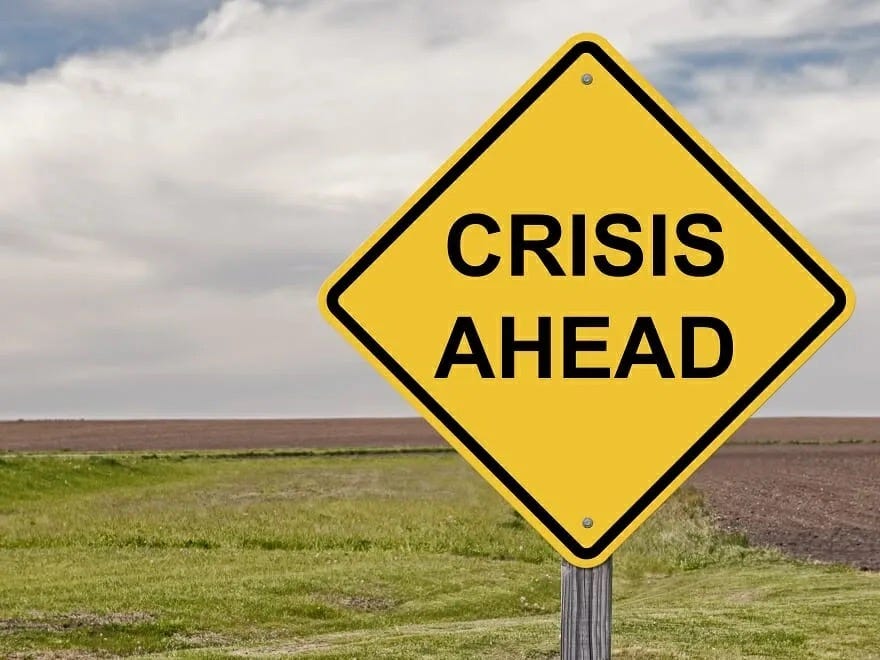Noise, Fear, and Focus: The Mental Model That Keeps Me Investing When the World Feels Like It’s on Fire
These days, you can hardly open your phone without being bombarded by one geopolitical crisis after another.
War. Elections. Terror. Trade. Protests. Fear.
There’s always a new headline, a new event that’s supposed to change everything.
And if you listen to the news cycle long enough, you might actually believe it does.
But I’ve learned to ask myself one simple question:
Does this change anything about the business I own?
If the answer is no, I move on.
The Rise of the Armchair Geopolitical Analyst
Everybody seems to be a geopolitics expert nowadays.
Twitter is full of amateur military strategists, energy policy gurus, and central bank whisperers.
But I’m none of those. And I have no problem admitting it.
I don’t have access to classified data. I don’t understand the full complexity of regional tensions.
And frankly, most of the talking heads on financial TV don’t either.
Yet, many investors get caught in this trap—trying to outguess macro trends, second-guess war outcomes, and time markets based on news events that are impossible to predict and even harder to price.
It’s the ultimate illusion of control.
And the worst part is: even if you’re right about the event, you can still be completely wrong about the market’s reaction.
What I Focus On Instead
I don’t invest in political forecasts.
I don’t invest in fear.
I invest in businesses.
Real businesses. With real numbers. With real cultures.
And with real leadership teams that are thinking ten years ahead while everyone else is thinking about next week’s headline.
My mental model is simple:
I want to own companies that are so good, so essential, and so adaptable that they can thrive no matter what the world throws at them.
That doesn’t mean they won’t have bad quarters. Or that the stock won’t drop during a crisis.
But it means the underlying story doesn’t break.
Because here’s the truth:
A war doesn’t suddenly make a great business a bad one.
And peace doesn’t make a bad business great.
Investing Through the Fog
Every time there’s a geopolitical shock, the media screams:
“This time is different.”
And sometimes it is.
But most of the time, it’s just fog.
Fog that blurs your vision and makes you forget what you’re actually trying to do as an investor.
Your job isn’t to react to every new event.
Your job is to evaluate whether the business you own is still doing what you expected it to do.
To check if the original reasons for buying it are still intact.
Here are the questions I ask myself during the noise:
Are revenues and margins holding up?
Is the company still gaining market share?
Is the culture still healthy and mission-driven?
Is the product still solving a real need?
Is innovation alive?
Are the key people still on board and executing?
These are things I can evaluate. These are things I can research and track.
Geopolitical risk? I can’t handicap that with any accuracy.
But I can study a company’s ability to adapt and navigate tough times.
And that’s a far more actionable edge.
The Hidden Advantage of Staying Focused
In times of fear, capital flees.
Markets panic.
Multiples compress.
Quality is ignored.
And that’s when clarity becomes your biggest advantage.
If you’ve done the work before the storm, and you truly understand the business you’re in, the panic of others becomes your opportunity.
This is how wealth is created in investing:
Not by avoiding every drop, but by using drops to accumulate greatness.
Most people want certainty before they buy.
But markets don’t work like that.
The price of certainty is already baked into the valuation.
To get asymmetric returns, you have to lean into intelligent uncertainty—situations where the world is confused, but you’re not.
A Business-Centric View of the World
Here’s a truth I remind myself often:
Innovation doesn’t stop because a headline says the world is ending.
People don’t stop needing medicine.
They don’t stop banking.
They don’t stop eating, searching, dating, or learning.
They keep living. And the best companies—those that solve essential needs—keep building.
They hire.
They launch new products.
They optimize.
They improve logistics, branding, customer experience.
They zoom out while the world zooms in on fear.
If you can do the same as an investor, you will see opportunities where others see only risk.
What I Know, What I Don’t, and Why That’s Okay
I’m not here to predict the next war.
I’m not here to comment on interest rate politics or currency fluctuations.
I’m here to find 10x businesses.
Businesses that will be bigger, stronger, and more resilient five or ten years from now.
Businesses that create value so consistently that even global chaos can’t destroy their trajectory.
And for that, I don’t need to know everything.
In fact, one of the most liberating things in investing is knowing what not to focus on.
Conclusion: Radical Focus as a Competitive Edge
The world has always been chaotic.
But wealth is still being built—quietly, patiently, by those who block out the noise and do the work.
That’s the edge:
To stay rational when others chase fear.
To stay business-focused when others chase narratives.
To stay long-term when others chase headlines.
I know what I’m good at.
I analyze business models.
I study culture.
I evaluate execution.
And I invest with conviction when I find something I understand deeply.
Let the world play the geopolitical guessing game.
I’ll stick to owning great businesses.
And I’ll let time do its thing.


